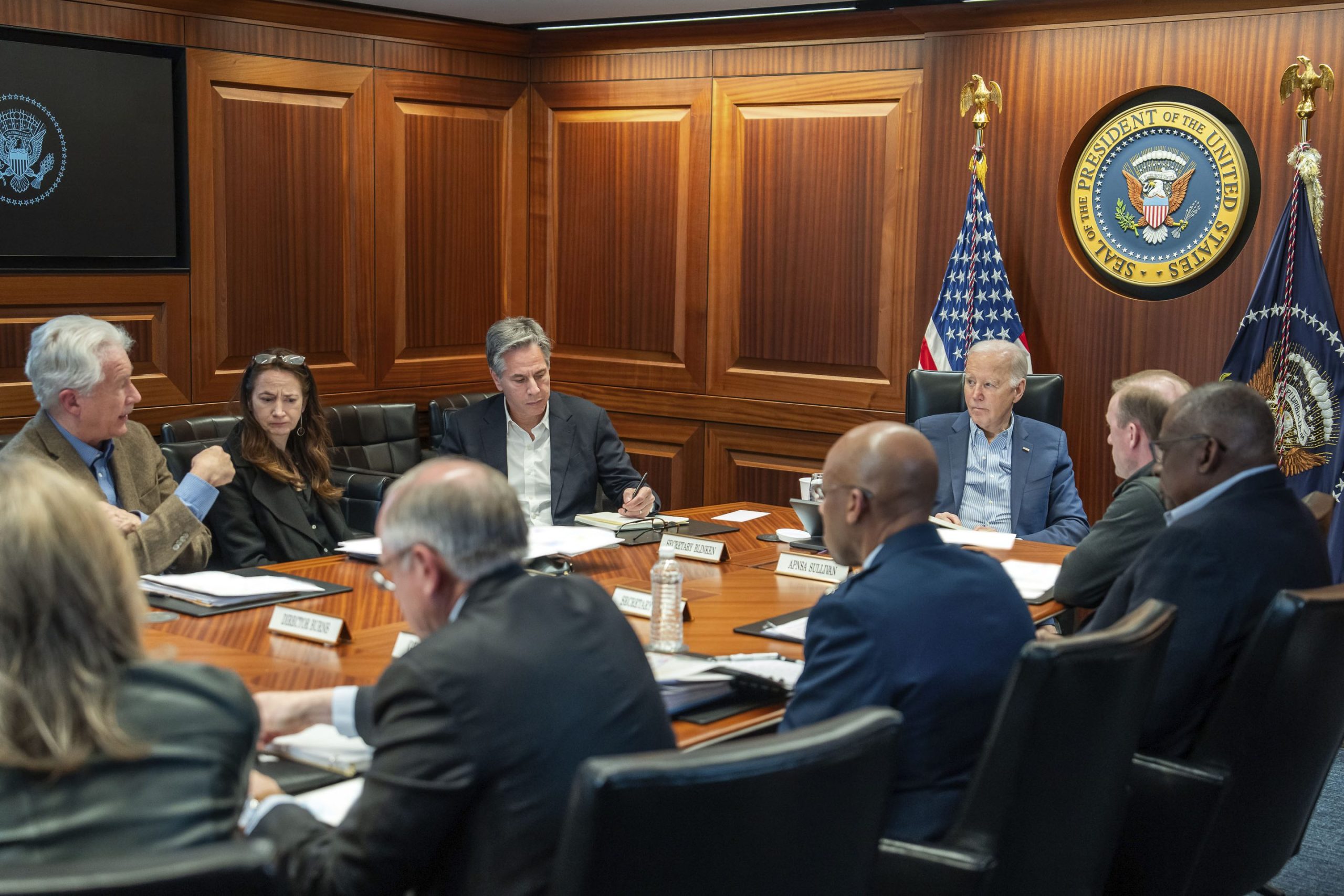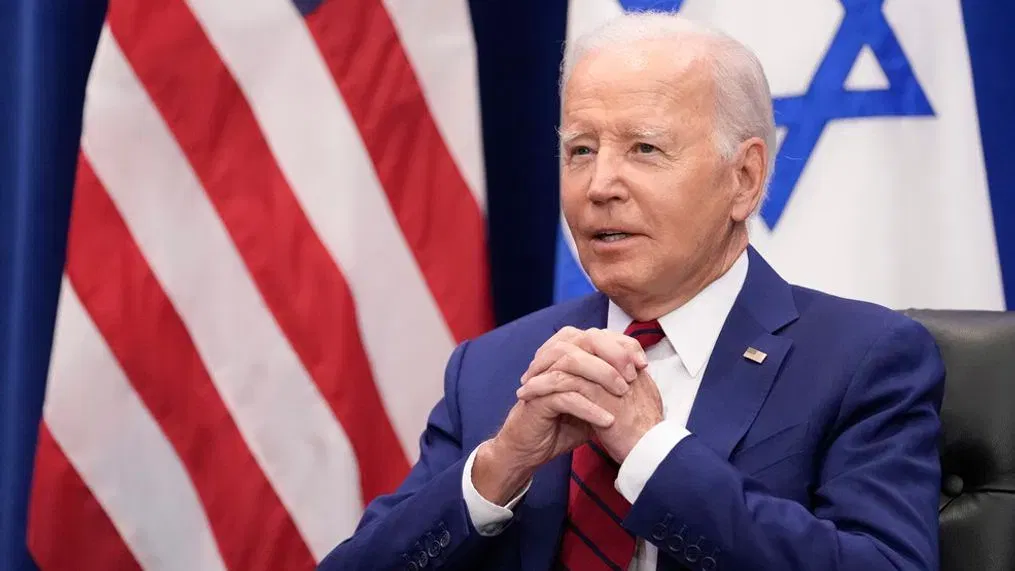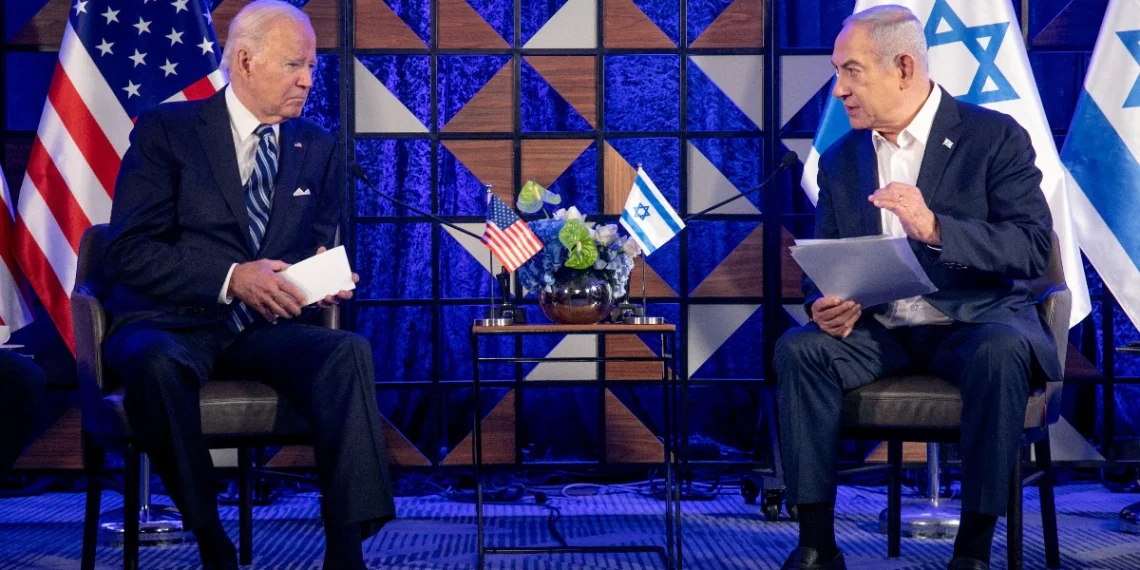President Joe Biden conveyed to Israeli Prime Minister Benjamin Netanyahu that the United States would not partake in any Israeli retaliation against Iran following Iran’s extensive drone and missile assault on Israel in response to an alleged Israeli strike on Iran’s Syria consulate.
In a late Saturday statement, Biden commended Israel’s adeptness in repelling such attacks but did not disclose discussions regarding potential Israeli responses or U.S. involvement.
A senior U.S. official affirmed Israel’s prerogative to defend itself, citing longstanding policy, but reiterated U.S. non-participation.

John Kirby, the White House‘s national security spokesperson, reiterated the U.S.’s commitment to aiding Israel’s defense while emphasizing a desire to avoid war with Iran.
Kirby affirmed the U.S.’s unwavering support for Israel’s defense but emphasized a reluctance to escalate tensions or engage in a broader conflict in the region.
The U.S. stance underscores a delicate balance between supporting Israel’s security and avoiding entanglement in a potential escalation with Iran.
The dialogue between Biden and Netanyahu reflects the complex dynamics of Middle Eastern geopolitics and the U.S.’s role as a key ally to Israel.

While reaffirming support for Israel’s self-defense, the U.S. is cautious about exacerbating tensions in the region or getting embroiled in a wider conflict with Iran.
As tensions persist in the Middle East, Biden’s assurances to Netanyahu underscore the importance of diplomacy and strategic restraint in managing the volatile situation.
The U.S. aims to uphold its commitments to its allies while addressing the complexities of regional geopolitics and avoiding actions that could escalate tensions further.





